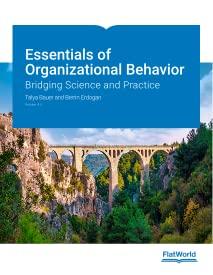Question
Organizational development (OD) consists of disciplines that include: social psychology, group dynamics, industrial-organizational psychology, participative management theory, organization behavior, the sociology of organizations, and even
Organizational development (OD) consists of disciplines that include: "social psychology, group dynamics, industrial-organizational psychology, participative management theory, organization behavior, the sociology of organizations, and even clinical psychology" (Organizational Development, n.d., para 1). OD uses a systems view of an organization utilizing behavioral science research to aid a company's growth and success through managed processes via interpersonal relationships and careful evaluation before, during, and after to ensure targeted results occur (McNamara, n.d.). Multiple cross-fields concern an OD practitioner; according to Hubbell (2013), an OD practitioner can be a "counselor, mediator, judge, and political player" (2013, pp. 75-79).
OD is not a profession as it does not follow a specific set of ethics but is instead a field focusing on organizational change (McNamara, n.d.). OD is a subset of I/O psychology encompassing change management but is more than change management (Nguyen, 2016). OD practitioners are involved with every level of an organization, including training, education, mentoring, and coaching (McNamara, n.d). Facilitation is a big part of OD, as OD practitioners mediate disputes to smooth interpersonal interactions and create meaningful dialogue within companies (Hubbell, 2013). OD practitioners collaborate with HR to understand underlying conflicts and roles within an organization, who the players are, and any potential changes that need to occur (Rothwell, 2015). Organizational development focuses on many different things within an organization, but the aim is the same--to ensure that companies are as successful at change and growth as possible.
Provide an in-depth responseto postings. A suitable response will include one of the following:
- Ask a probing question.
- Share an insight from having read your colleague's posting.
- Validate an idea with your own experience.
- Make a suggestion.
- Expand on your colleague's posting.
Step by Step Solution
There are 3 Steps involved in it
Step: 1

Get Instant Access to Expert-Tailored Solutions
See step-by-step solutions with expert insights and AI powered tools for academic success
Step: 2

Step: 3

Ace Your Homework with AI
Get the answers you need in no time with our AI-driven, step-by-step assistance
Get Started


